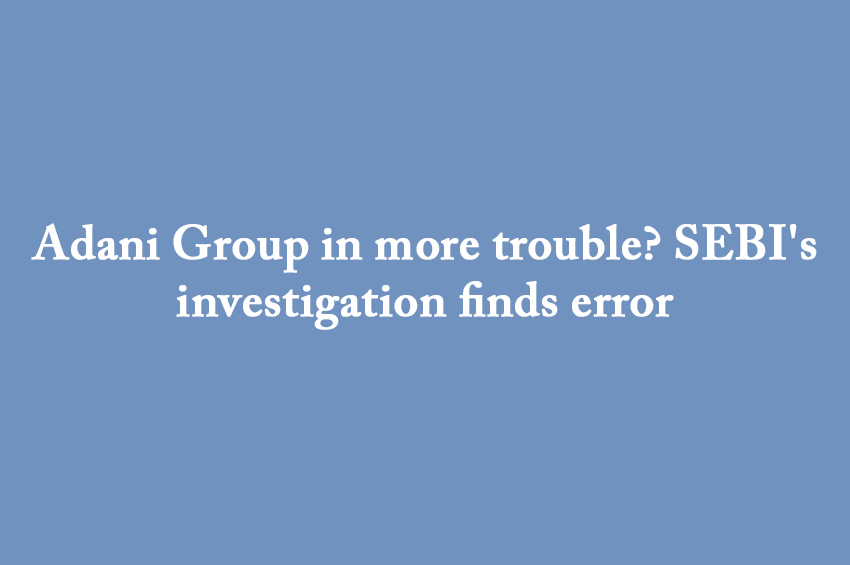Winning Bizness Desk
Mumbai.Several fingers were raised following Hindenburg report over the modalities of Adani Group. Its impact was also felt in the share market for many days and even now, Adani Group's woes may once again rise. According to the reports, markets regulator SEBI has found the Adani Group in violation of rules related to disclosure and holding limits of offshore funds. American short-seller firm Hindenburg Research had in January this year published a report on the dealings of industrialist Gautam Adani-led Adani Group, raising several questions related to corporate governance. Following this report, Adani Group's market value was reduced by around $100 billion. After questions were raised about Adani's dealings in the country as well, an inquiry was started by SEBI. The Adani Group, which has businesses ranging from ports to power generation, has denied all the allegations.
Violations are "technical" in nature
Sources briefed on the SEBI inquiry report said the violations by the Adani group are "technical" in nature and no action beyond financial penalties will be taken after the probe is completed. The investigation of SEBI is being conducted under the supervision of the Supreme Court and the matter will be heard in the court on Tuesday, May 29. A second source related to the report said that there is currently no plan to make the SEBI report public. Along with passing the order in this entire case, they will make all the reports public.
Fine of up to Rs 1 crore !
Earlier on Friday, August 25, SEBI told the Supreme Court that it has almost completed its probe into the Adani Group's dealings. Some of the findings in the investigation are related to violations of the transaction rules. According to documents submitted by SEBI in the court, it has investigated certain transactions. According to sources, a fine of up to Rs 1 crore can be imposed as penalty for each violation committed by each company. Offshore funds in some companies of the Adani group were not in accordance with the rules. According to Indian law, offshore investors can invest a maximum of 10 percent through FPI. Investment beyond that is considered as foreign direct investment.


